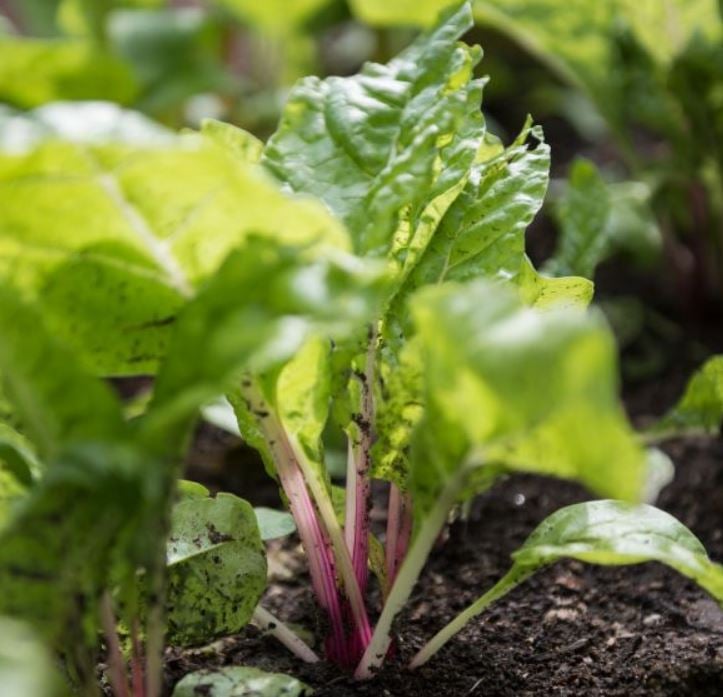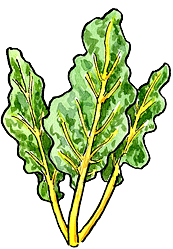Swiss Chard
Swiss chard is one of the easiest and most satisfactory plants you can grow in a home garden. It is a close cousin to the beet, but has been selected over the centuries for its ability to produce abundant leaves, rather than roots. Standard Swiss chard has pale green stems and dark green, dimpled leaves. Newer varieties have stems and veins in a rainbow of colors including red, white, yellow, magenta and pink. These leaves are delicious steamed or saut饤 and the young leaves are usually tender enough to be served raw in salads.

Swiss chard is quite frost-tolerant. It may be planted by seed directly into the garden, one to two weeks before the last spring frost. Unlike spinach, which is also frost-hardy, Swiss chard isn't bothered by the heat of summer. Because it is a biennial, it will rarely go to seed in its first year of growth (unless badly stressed). Be sure to keep the plants well-watered. An inch of water per week is about right.

Like beets, Swiss chard "seeds" are actually a package of several small seeds clumped together. This means you will need to thin the seedlings, even if you have carefully spaced the "seeds" four inches apart. Swiss chard grows best in well-drained soil that is rich in organic matter, and has a pH of 6.0 to 7.0. The plants do not require much fertilizer and they're almost never troubled by pests or disease problems.
One of the endearing qualities of Swiss chard is its "cut-and-come-again" qualities. To harvest, you can cut the entire plant back to an inch or so above the ground. The plant will respond by sending out a new crop of tender leaves. If you plan to harvest your Swiss chard like this, the plants may be grown closer together, say six plants per square foot. After your first harvest, sow a few Swiss chard seeds in other areas of the garden to be sure you always have a good supply of tender young leaves.
Another way to harvest Swiss chard is to remove leaves from the outer edges of the plant as you need them. With plenty of water, you can usually continue harvesting from these full-size plants for many months. If you plan to grow your Swiss chard in this way, space plants at two per square foot.
The rainbow-colored Swiss chard, which generally goes by the name Bright Lights, is so pretty that some greenhouses sell the plants for use in decorative pots and flower beds. It is trouble-free, looks good all summer, and at the end of the season, you can eat it.
Print this Article:
Get the Dirt
Stay up to date on new articles and advice. Please fill out the information below.
